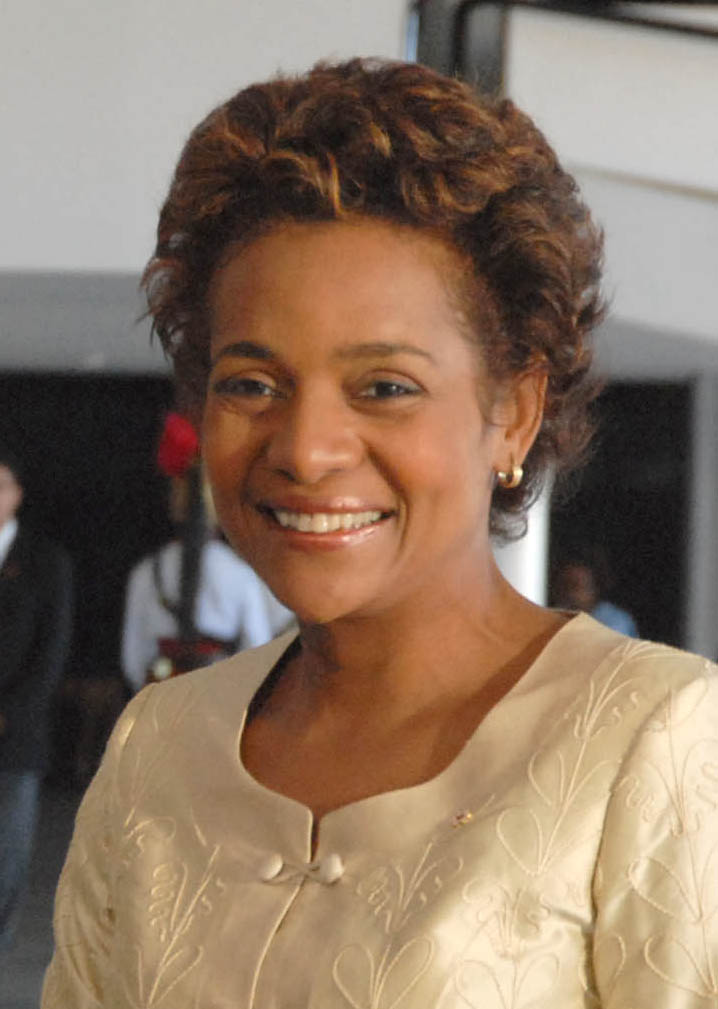American Pere Housh wrote:(Image)
([url=<Photo%20of%20Applicant%20Here>]Image[/url])
Character Application and Information Sheet
NS Nation Name:American Pere Housh
Character Name:Samantha Torres
Character Gender:Female
Character Age:55
Character Height:5'6"
Character Weight:130 Ibs
Character Position/Role/Job:U.S. House of Representatives District 1 of Florida (January 3rd 2013- present)
House Armed Sevices Committee Chairwoman (January 3rd 2021-Present)
Mayor of Pensacola, Florida (2006-2013)
Electrical engineer with Gulf Power (1988-2006)
Character Country/State of Birth:Havana Cuba
Character State of Residence:Pensacola, Florida
Character Party Affiliation:Republican
Main Strengths:Well liked in Her district, Strong support from Pro Second Amendment, anti abortion and veterans groups, strongly opposed to the Communist regimes in Cuba, North Korea and China
Main Weaknesses:Unwilling to Compromise, hated by Progressives due to her stance against their Socialist agenda
Biography:Born on January 5th, 1966 in Havana, Cuba to Juan and Maria Hernandez, Samantha spent the first 7 years of her life living in Cuba's capital of Havana when her parents decided to take herself and her three sisters to the United States becoming 5 of the thousands of Cubans that fled Cuba to the United States. For the first year, the Hernandez family stayed in Miami before finally moving to Pensacola, Florida in May of 1974. In August of 1974, Sam was enrolled at Myrtle Grove Elementary School for 3rd grade. Due to her father's previous visits to the United States, Sam was able to speak fluent English though with a light Cuban accent. Once in her new school, she began to excel in all of her classes. In 6th grade, she went to Beulah Middle School where she chose to play swimming for her school. In high school, Sam went to Pine Forest High School which had only recently open a few year earlier. In addition to swimming, Samantha was also involved in theater. While she didn't have the highest GPA, Sam's GPA was high enough that she was offered scholarships to swim at several schools all across the country. In the end, she chose to go out of state to attend the University of Georgia and be on their swim team. After maintaining a 4.05 GPA over the next 4 years, Sam graduated 3rd in the Class of 1988 with a degree in electrical engineering.
Freshly graduated from college, Sam began looking for herself a job which she found in Gulf Power where she worked as an electrical engineer. While working there, Sam met her future husband Daniel Torres who was a year older than she was. On October 31st, 1989, Daniel proposed to Sam who immediately said yes. Les than one year later on September 11th,1990, the couple got married at the Baptist Church that they both had been attending. Sam had invited several friends that she had made while she was at Georgia including making her best friend Alexandria Williams otherwise known as Alex Williams. 9 months after the wedding on June 14th, 1991, their first born daughter Alexis Samantha Torres was born. On April 25th, 1994 their second daughter Riley Elizabeth Torres was born. Life continued on as normal when in May of 1996 Sam got pregnant again. What was different from her first 2 pregnancies was that she was getting bigger quicker. She went to see her Ob/Gyn doctor who after doing an ultrasound told that she was having twins. On February 10th 1997, Sam had identical twin girls which she named Hannah Danielle Torres and Gabriella Lily Torres.
On December 15th 2005, Sam maid the decision to run for Mayor of Pensacola. Her main focuses if elected mayor would be to reduce crime and expand the local economy. She won the election 58% to 42% beating her Democratic opponent soundly on August 23rd 2006. She won again by a closer margin winning 55% to 45% in 2010. In June of 2011, she declared her canidancy to run for Florida's House District 1 due to the current holder of the seat retiring after his term is up. Over the next several months, Sam campaigned vigorously against an opponent who used a smear campaign to lable her as a right wing extremist. On November 6th 2012, Sam won the seat in a landslide 70% to 30%. She would continue to hold her seat right on though the 2020 election.
Other Info:Married to Daniel Torres since September 11th 1990, 9 months after the wedding on June 14th, 1991, their first born daughter Alexis Samantha Torres was born. On April 25th, 1994 their second daughter Riley Elizabeth Torres was born. Life continued on as normal when in May of 1996 Sam got pregnant again. What was different from her first 2 pregnancies was that she was getting bigger quicker. She went to see her Ob/Gyn doctor who after doing an ultrasound told that she was having twins. On February 10th 1997, Sam had identical twin girls which she named Hannah Danielle Torres and Gabriella Lily Torres.
I have read and accept the rules of the roleplay:American Pere Housh (Your Nation's Name Here)
Do Not Remove: DRAFT87421
What has she done in congress?















